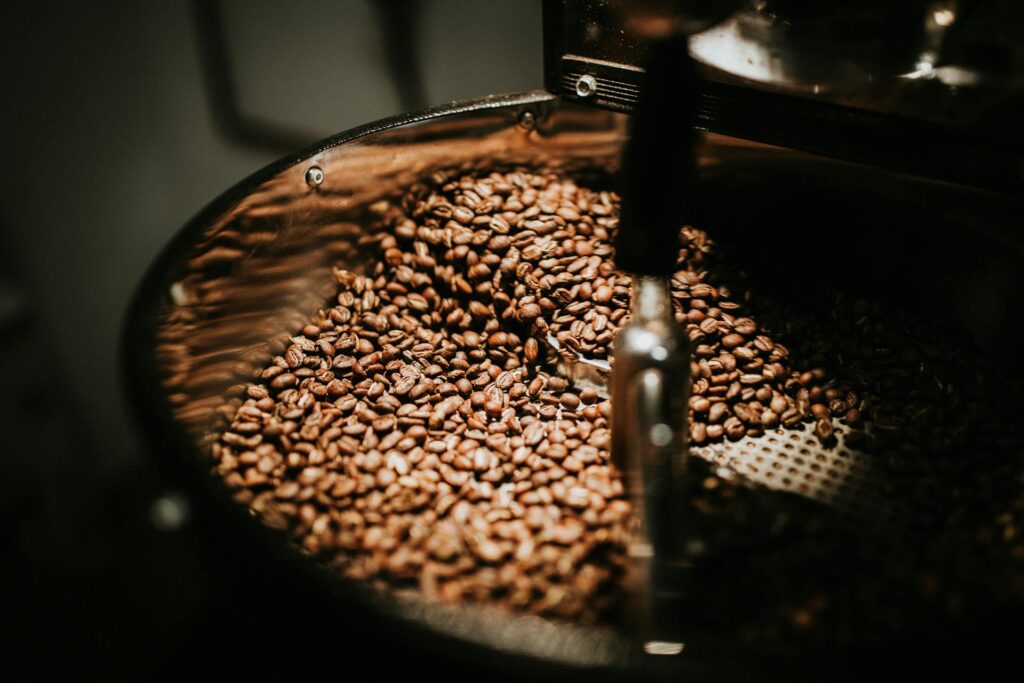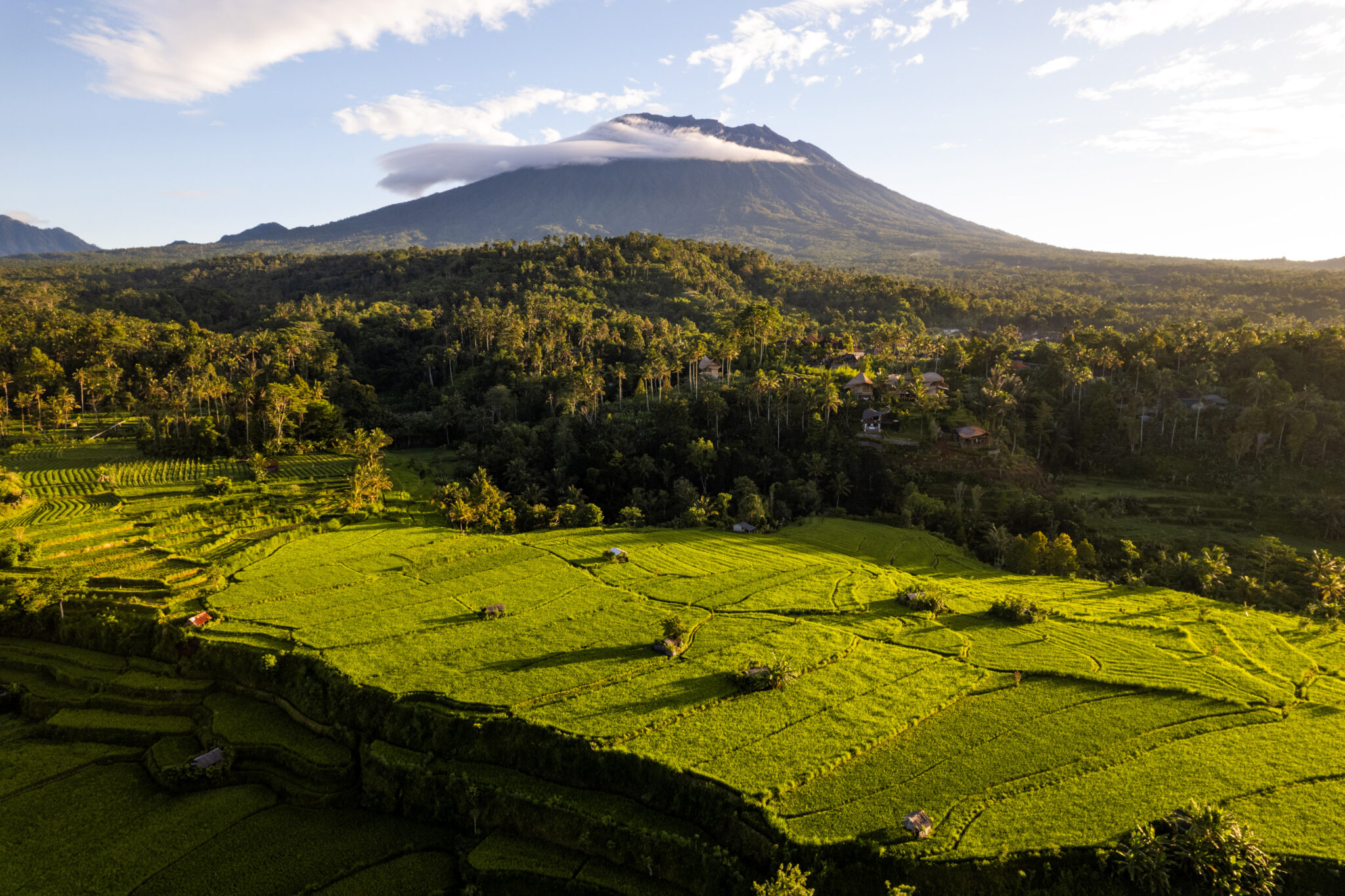Bali, known for its stunning landscapes, rich culture, and thriving tourism industry, is also making a name for itself in the world of specialty coffee. The island’s unique coffee-growing conditions, traditional farming methods, and distinct flavors are driving the rise of Bali coffee in the global market. Whether you’re sipping a cup in a local café or purchasing beans online, Bali coffee is becoming a sought-after commodity among coffee connoisseurs worldwide.
Bali’s Coffee Landscape: A Unique Growing Region
Bali’s volcanic soil, tropical climate, and altitude create ideal conditions for growing high-quality coffee. The island’s coffee-growing regions, particularly in the highland areas of Kintamani, Bedugul, and Tabanan, are known for their distinct coffee profiles, with flavors that are deeply influenced by the local environment and farming practices.
Ideal Climate and Soil for Coffee Cultivation:
Bali’s rich volcanic soil, combined with moderate rainfall and warm temperatures, creates the perfect growing environment for coffee. The island’s coffee is typically grown at altitudes between 1,000 and 1,500 meters above sea level, which helps develop the beans’ complex flavors. The unique combination of soil, climate, and altitude contributes to the nuanced taste profiles found in Bali’s coffee varieties.
Traditional Farming Practices:
In Bali, many coffee farms still operate using traditional, sustainable farming methods that have been passed down through generations. Many coffee producers grow Arabica and Robusta beans alongside other crops such as spices and fruits, promoting biodiversity and eco-friendly practices. These traditional techniques help preserve the island’s rich cultural heritage and ensure that Bali’s coffee remains a truly unique product.
Distinctive Flavors of Bali Coffee
Bali coffee is known for its rich and complex flavor profiles, offering coffee lovers a diverse and intriguing taste experience. The unique growing conditions in Bali result in coffee with a distinct balance of fruity, nutty, and earthy notes, often accompanied by mild acidity and a smooth finish.
Flavor Characteristics:
- Arabica Bali Coffee: Known for its light to medium body, Bali Arabica coffee typically has fruity and floral flavors with hints of citrus and chocolate, providing a clean and vibrant taste. These coffees are often sought after for their smooth, well-rounded profiles and delicate acidity.
- Robusta Bali Coffee: Robusta coffee grown in Bali tends to have a stronger, bolder flavor, with a more pronounced earthy or woody note. It is often used in blends or for making espresso, contributing to a fuller-bodied cup with a rich crema and slightly higher caffeine content.
Traditional Balinese Coffee Preparations:
One of the most well-known traditional coffee drinks in Bali is kopi tubruk, where coffee is brewed with sugar, creating a rich and sweet coffee experience. Bali’s coffee culture is deeply intertwined with daily life, and local cafés and warungs (small shops) often offer coffee made from freshly ground beans, prepared with love and care.
Bali Coffee’s Growing Presence in the Global Market
In recent years, Bali coffee has gained international attention and recognition for its quality and distinctiveness. The island’s coffee is now being exported to various countries, catering to the growing demand for specialty coffee.
International Recognition:
Bali coffee has earned accolades in international coffee competitions, including recognition for its smooth flavors, complex profiles, and high-quality production. These awards have helped increase global awareness of Bali’s coffee, drawing attention to the island as a key player in the specialty coffee scene.
Growing Export Markets:
Countries such as the United States, Australia, Japan, and several European nations are now major markets for Bali coffee. Local producers and cooperatives have increasingly sought ways to improve quality and certification processes, ensuring that Bali coffee meets the expectations of international coffee drinkers. The growing demand for sustainably sourced and specialty coffee has placed Bali at the forefront of global coffee trends.
Coffee Tourism in Bali:
Coffee tourism is another emerging trend that showcases the growing prominence of Bali coffee. Visitors to Bali are increasingly interested in experiencing the island’s coffee culture firsthand by touring coffee farms, learning about the cultivation and processing methods, and sampling freshly brewed coffee. These tours not only promote Bali’s coffee but also support local farmers and communities, making coffee tourism an essential part of the island’s economy.
The Future of Bali Coffee in the Global Market
As Bali coffee continues to gain recognition and demand, the future of Bali’s coffee industry looks promising. The island’s commitment to sustainable farming practices, combined with its unique flavor profiles, positions it as a key player in the global specialty coffee market.
Sustainable Practices and Fair Trade:
Many Bali coffee producers are focusing on sustainable practices, ensuring that their coffee is produced in an eco-friendly manner. Efforts to maintain biodiversity, reduce carbon footprints, and promote fair trade practices are becoming more widespread. This aligns with the increasing consumer demand for ethically sourced and environmentally responsible coffee.
Innovation and Growth:
With a growing number of coffee enthusiasts seeking unique and high-quality coffees, Bali’s coffee industry is expected to innovate further. Producers are experimenting with new processing methods, including natural and washed processing, which can further enhance the flavors of Bali coffee. Additionally, collaborations between local farmers and international coffee roasters are likely to continue, leading to increased exposure and further growth in Bali’s coffee market.
Conclusion
Bali’s specialty coffee is gaining a strong foothold in the global market, thanks to its unique growing conditions, distinct flavors, and traditional farming methods. With increasing recognition on the international stage, Bali coffee is becoming a key player in the world of specialty coffee, offering coffee lovers an authentic and high-quality coffee experience.
As demand for sustainably sourced and high-quality coffee grows, Bali is poised to continue its ascent in the global coffee industry. Whether enjoyed by tourists on the island or by coffee enthusiasts across the world, Bali’s coffee is truly becoming a symbol of excellence in the coffee world.





